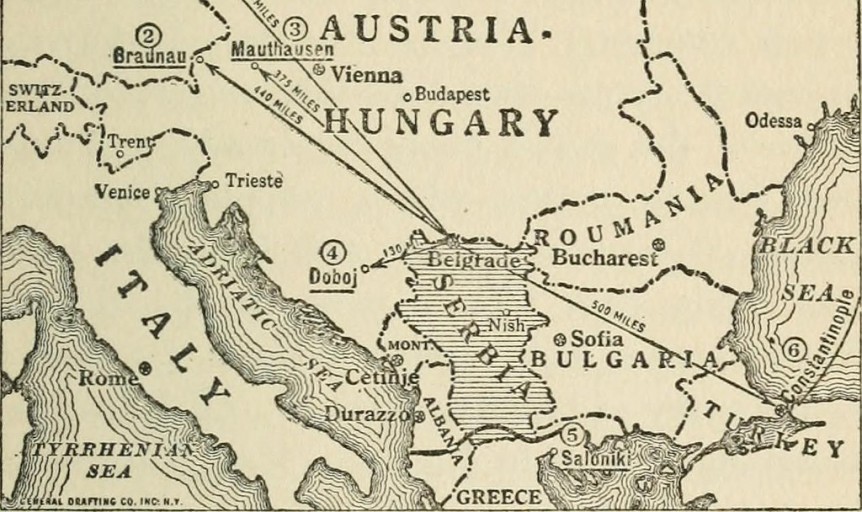Understanding history is an essential ingredient in understanding the present. Ian Mortimer, a scholarly populariser of mediaeval history has put it like this:
W.H. Auden once suggested that to understand your own country you need to have lived in at least two others. One can say something for periods of time: to understand your own century you need to have come to terms with at least two others.The key to learning something about the past might be a ruin or an archive but the means whereby we may understand it is — and always will be — ourselves.1
But reading popular history can be also be a very rewarding and enjoyable enterprise. But whatever our reasons for reading, it is always worth keeping alert to a book’s aims and methods.
Introductory
- Appeal: What drew you to the book in the first place? Is this a subject or period that you are already familiar with, or is it completely new for you?
- Marketing: How was the book marketed (e.g. offering radically new, or even revisionist, insights into a familiar story, or a first-time analysis of a previously unknown event)? Was that a factor in your reading it?
- Interest: Did it sustain your interest? If you did not reach the end, why did you give up? Did it live up to the hype and/or your own first impressions and expectations? Did you find it enjoyable and/or informative? Would you recommend it?
- Popularity: If the book is a bestseller, what do you think explains its appeal? Does its popularity reveal anything about the spirit of our age and popular culture?
Approach
- Author: Does the author write as a professional historian seeking to popularise academic research, or as a nonspecialist with a personal interest? Does this matter?
- Scale: What was the scale of the book – a narrow focus (e.g. on an individual life or key event) or the grand scale (e.g. a whole period, nation or region)? What were the gains and losses from such an approach?
- Research: How evident is the author’s research (e.g. use of footnotes; explicit engagement with contradictory views)? As far as you can tell, does it interact with primary sources (where available), as well as with other modern (or academic) accounts of the period in question? How does the author appear to be selecting evidence?
- Style: Does this affect the book’s style (e.g. quite dry and detailed perhaps, or journalistic and fast-paced)? Again, what were the gains and losses from such an approach?
- Speculation: To what extent are gaps in the available historical record filled with speculation or even narrative creativity? Are these speculations acknowledged as such, or are they asserted as historical certainty? To what extent does the book depend on these for its primary claims?
Agenda
- Revision: Does this book seek to overturn, or perhaps defend, conventionally held views? Are there clues as to what motivates this concern?
- Controversy: If the book is at all controversial, how does it handle competing interpretations? Does it come across as one-sided and skewed, or fair and impartial?
- Complexity: Do you sense that the book over-simplifies events (e.g. by suggesting only a handful of clear-cut ‘causes’) or does it leave the reader overwhelmed by the complexity of a period?
- Worldview: Are there clues as to the author’s worldview? How does this affect the interpretation of events (e.g. when assessing religious activity, philosophical ideas, or political events)? To what extent is there sympathy for the culture of the period in question? Or do you sense that it is being judged on anachronistically modern terms?
Relevance
- Humanity: Despite focusing on a past era or individual, did you gain insights into our common humanity? Were there any resonances with your own experience of life?
- The Present: In what ways does this book help us to understand our present? Does it perhaps go some way to giving perspective to contemporary areas of conflict, controversy or difficulty? Does the author make this explicit (if so, do you agree?) or are you left to draw your own conclusions?
Some personal favourites
Aaronovitch, David: Voodoo Histories: How Conspiracy Theory Has Shaped Modern History (Vintage, 2010)
Bate, Jonathan: The Soul Of The Age: The Life, Mind And World Of William Shakespeare (Viking, 2008)
Dobbs, Michael: One Minute To Midnight: Kennedy, Khrushchev And Castro On The Brink Of Nuclear War (Arrow, 2009)
Funder, Anna: Stasiland: Stories From Behind The Berlin Wall (Granta, 2004)
Gombrich, E.H.: The Story Of Art (Phaidon, 1950; 16th edition, 2007)
Hannam, James: God’s Philosophers: How The Medieval World Laid The Foundations For Modern Science ( Icon, 2010)
Holmes, Richard: The Age Of Wonder: How The Romantic Generation Discovered The Beauty And Terror Of Science (HarperPress, 2009)
Lewis, Ben: Hammer And Tickle: A History Of Communism Told Through Communist Jokes (Phoenix, 2008)
Milton, Giles: Paradise Lost: Smyrna 1922 – The Destruction Of Islam’s City Of Tolerance (Sceptre, 2009)
Mortimer, Ian: A Time Traveller’s Guide To Medieval England: A Handbook for Visitors to the Fourteenth Century (Vintage, 2009)
North, John: The Ambassadors’ Secret: Holbein And The World Of The Renaissance (Phoenix, 2004)
Reader, John: Africa: A Biography Of The Continent (Penguin, 1996)
Ross, Alex: The Rest Is Noise: Listening to the Twentieth Century (Harper Perennial, 2009)
Zeldin,Theodore: An Intimate History of Humanity (Vintage, 1994)
- Ian Mortimer, The Time-Traveller’s Guide to Medieval England (Vintage, London, 2009) ↩
Share this Post

